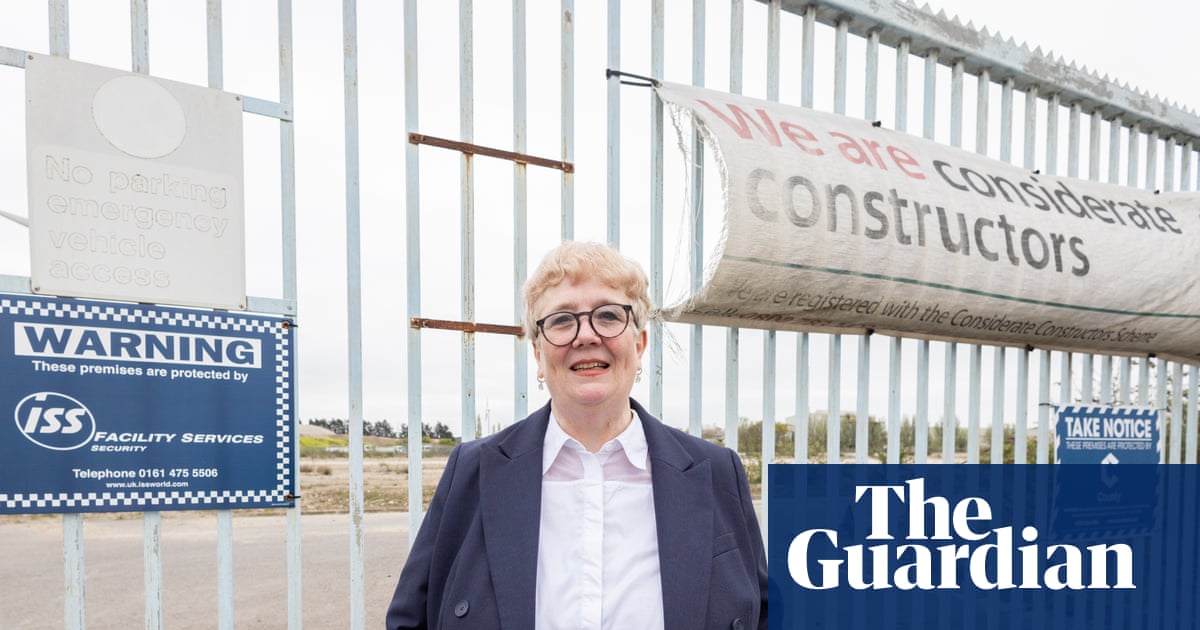The Labour whip who resigned in protest against disability benefit cuts has said Keir Starmer’s concessions do not yet go far enough to win her over, as No 10 launched a fresh attempt to stem the revolt against its welfare bill.
Vicky Foxcroft, who quit her frontbench role over the welfare bill a little more than a week ago, urged the government to work jointly on the changes with disabled people and to publish the review of the system before bringing in cuts.
In an interview with the Guardian, Foxcroft said she had not made up her mind how to vote on Tuesday but would need assurances about further improvements.
“I would hope that actually we start to ensure we listen to disabled people and their organisations right across government. This isn’t just about warm words. This is about making sure we get policy right,” she said.
Starmer is facing a challenging 48 hours as No 10 battles to persuade Labour MPs to back the welfare bill now that the government has promised that current claimants of personal independence payment (Pip) will not be subject to proposed cuts. It also pledged that the health element of universal credit will rise at least in line with inflation.
Dozens of Labour MPs appear yet to be convinced, with estimates that 50 to 60 would like to see further changes, although one of the leading original critics, Louise Haigh, the former transport secretary, said she was now likely to back the legislation. Meg Hillier, the Treasury committee chair, has also switched to say she will back the bill, but many others are waiting to see further details.
In her first interview since quitting, Foxcroft said it was “good to hear that people won’t be losing their benefits who are currently on them” but said there were “areas where I still think there’s need for movement”.
The MP said one of the biggest issues was the need for co-production with disabled people and disability groups, and that should have happened “absolutely from the start”.
“This is the problem. And this is why a lot of people have said, ‘Can we delay this? Can we pause this until we ensure that we properly get it right?’ Right now, we’re kind of tinkering in terms of things to make it the least worst situation we can, and we need to learn lessons from that and make sure that we get these things right going forward,” she said.
The former shadow minister for disabled people said she would also like to see the Pathways to Work review by Stephen Timms, the minister for social security and disability, published before the implementation of the bill that would bring in cuts. The 12-week consultation period began on 7 April.
Foxcroft said she did not see herself as a rebel and had not wanted to resign but felt welfare bill plans would hurt the most vulnerable and she knew she could not whip or vote for something she did not believe in.
She said the whips had been “raising … for months” that Labour MPs were not happy with the disability cuts and that potentially part of the problem for Downing Street had been “maybe ensuring that you listen to what the chief whip says”.
But she said it was important that the prime minister “appreciates he needs to be in listening mode more … and I think you’ve got to really respect it when somebody does come out and say that”.
Starmer acknowledged in an interview with the Sunday Times that he did not get a grip on the Labour rebellion over disability benefits earlier because he was focused on foreign affairs.
The prime minister acknowledged he had not got it right, and said he would have wanted to make the concessions earlier. “I’d have liked to get to a better position with colleagues sooner than we did,” Starmer said. “I’m putting this as context rather than an excuse.”
after newsletter promotion
Foxcroft is one of dozens of Labour MPs who remain worried about the changes, despite concessions made by Liz Kendall, the work and pensions secretary, in a midnight email on Thursday.
Marie Tidball, a Labour MP who has a disability and chairs two all-party groups on autism and disability, wrote in the Guardian on Sunday that she wanted the bill to be produced along with disabled people, to promise more consultation over the summer, and to do better on enabling more people to work.
“Fundamentally, I will be looking for further reassurances that the detail will fulfil Labour’s manifesto commitments to disabled people,” she said.
Olivia Blake, one of the few Labour MPs with a disclosed disability, also accused the government of creating an “unethical two-tier system” by its welfare bill concessions – and urged rebels to stand firm.
The Disability Labour-affiliated group is also asking all MPs to oppose the legislation.
In another development, a legal opinion commissioned by the union Equity and given by Jamie Burton KC of Doughty Street Chambers, concluded that “the aggressive measures set out in the government’s proposals will inevitably result in very serious breaches of the UK’s obligations under the UN convention on the rights of persons with disabilities and the international covenant on economic, social and cultural rights.”
He added: “They are likely to be condemned by the treaty-monitoring bodies, who have become all too familiar with very similar reforms designed to cut the welfare bill and promote work, but which ultimately result in yet further and longstanding human rights violations for disabled people.”
A Department for Work and Pensions spokesperson said: “The secretary of state has carefully considered, and will continue to consider, all her legal obligations and is satisfied that these reforms are lawful.”

 2 months ago
101
2 months ago
101

















































